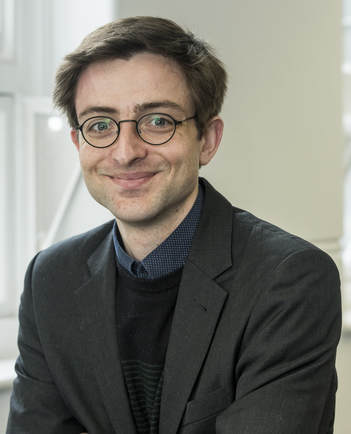
|
|
- HOME
- CV
- RESEARCH
-
Teaching
- Current Teaching
-
Past Teaching
>
- Moral Philosophy
- Philosophy of Mind
- Epistemology
- Classical Indian Philosophy
- The Metaphysics of Knowledge
- Moral Philosophy
- The Ethics of Belief
- Epistemology
- Scepticism
- Ethics
- The Ethics of Belief
- Epistemology
- Experience and the Distinctiveness of Perceptual Knowledge
- Epistemology
- The Ethics of Belief
- Philosophy of Mind
- Introduction to Political Philosophy
- The Ethics of Belief
- Epistemology
- Moral Philosophy
- Reasons, Rationality, and Ethics
- The Ethics of Belief
- Introduction to Epistemology
- Aesthetics of Film
- Introduction to Metaphysics
- Current Moral and Social Issues
- Introduction to Philosophy
- Personal
About

I'm an associate professor at the University of Southampton. I finished my PhD at Rutgers in 2014. Ernest Sosa was my advisor and Ruth Chang, Jonathan Dancy, Alvin Goldman, and Susanna Schellenberg were on my committee; you can see a post-defense picture here, complete with a Skype projection on my face. My dissertation was entitled On the Normativity of Epistemic Rationality. It sought to explain why we should care about being epistemically rational. My explanation rested on the thought that epistemic rationality constitutes respect for truth. This project quickly transformed into a larger one that explains why perspectival obligations have perspective-transcendent significance, by appealing to (i) the idea that all value calls fundamentally for respect, and (ii) the idea that respect is constituted by heeding the demands of perspective.
My longest-standing research interests are in epistemology. I also have research interests in philosophy of practical reason, philosophy of mind and cognitive science, and the history of epistemology. I've taught modules in many other areas, including aesthetics, political philosophy, history of philosophy (Kant, classical Indian philosophy (besides just the epistemology), British empiricism, and Continental rationalism), and metaphysics; I wanted to be a metaphysician of science as an undergraduate, and was obsessed with Kant in high school. Much of my research combines my interests in epistemology in the broad sense and ethics, and is best described as work in the ethics of belief. Two recent papers develop key ideas from my dissertation: (1) a paper published in Philosophical Review developing the first explicit and systematic non-consequentialist account of theoretical normativity (Epistemic Kantianism) and (2) a paper in Philosophical Studies applying similar ideas to practical reason. I'm finishing a book developing these ideas in a more Kantian way, tentatively entitled Respect for the Truth: A Kantian Account of Theoretical Normativity.
My work in epistemology in the narrow sense (i.e., the theory of knowledge) is mostly separate from this business. For I think epistemology in the narrow sense is a branch of the philosophy of mind. I defended this view in a 2018 paper. This non-normativist outlook took a new form in talks in 2017, 2018 and 2020; it evolved further as I learned about remarkable new work on the history of epistemology by Rosa Antognazza, Michael Ayers, and Lloyd Gerson, and as I learned more about classical Indian epistemology and 20th century work by S. C. Chatterjee, B. K. Matilal, and Bina Gupta that made similar historical points earlier. My view transformed into an outlook I call presentationalism, which you can find in this new draft.
My longest-standing research interests are in epistemology. I also have research interests in philosophy of practical reason, philosophy of mind and cognitive science, and the history of epistemology. I've taught modules in many other areas, including aesthetics, political philosophy, history of philosophy (Kant, classical Indian philosophy (besides just the epistemology), British empiricism, and Continental rationalism), and metaphysics; I wanted to be a metaphysician of science as an undergraduate, and was obsessed with Kant in high school. Much of my research combines my interests in epistemology in the broad sense and ethics, and is best described as work in the ethics of belief. Two recent papers develop key ideas from my dissertation: (1) a paper published in Philosophical Review developing the first explicit and systematic non-consequentialist account of theoretical normativity (Epistemic Kantianism) and (2) a paper in Philosophical Studies applying similar ideas to practical reason. I'm finishing a book developing these ideas in a more Kantian way, tentatively entitled Respect for the Truth: A Kantian Account of Theoretical Normativity.
My work in epistemology in the narrow sense (i.e., the theory of knowledge) is mostly separate from this business. For I think epistemology in the narrow sense is a branch of the philosophy of mind. I defended this view in a 2018 paper. This non-normativist outlook took a new form in talks in 2017, 2018 and 2020; it evolved further as I learned about remarkable new work on the history of epistemology by Rosa Antognazza, Michael Ayers, and Lloyd Gerson, and as I learned more about classical Indian epistemology and 20th century work by S. C. Chatterjee, B. K. Matilal, and Bina Gupta that made similar historical points earlier. My view transformed into an outlook I call presentationalism, which you can find in this new draft.





